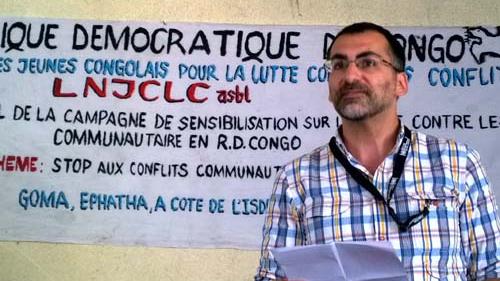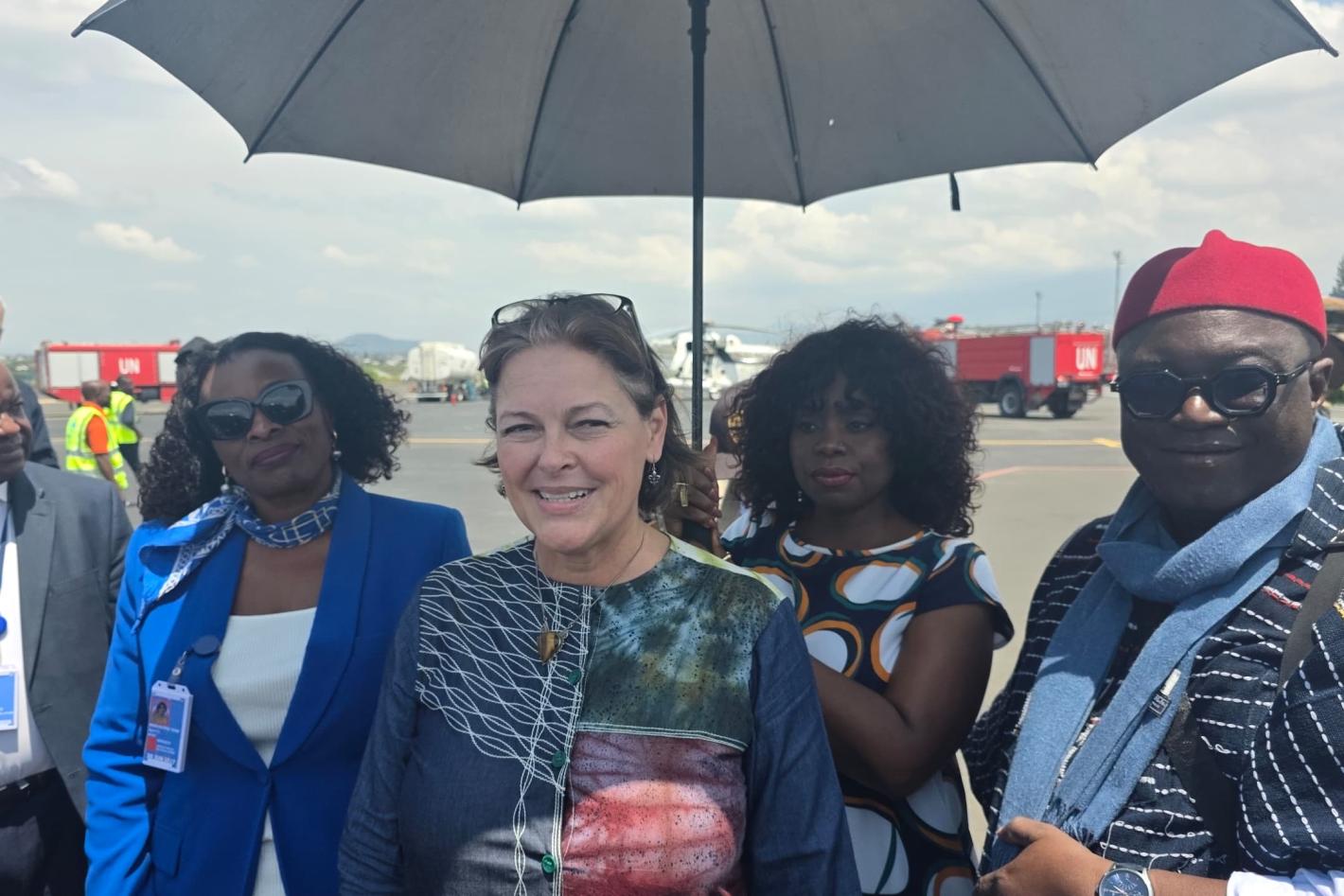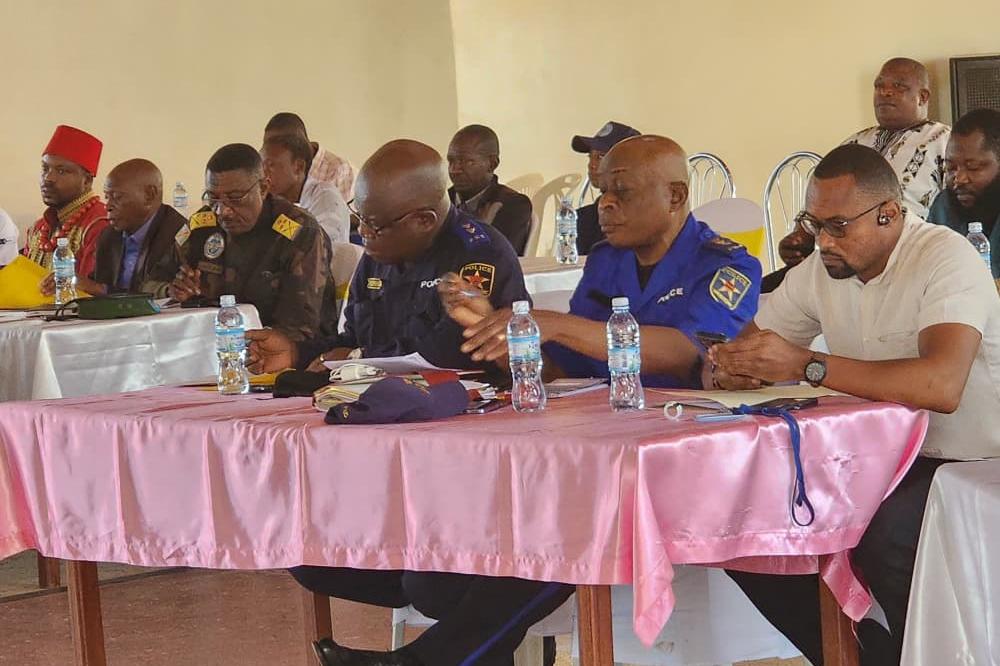A campaign initiated by the National League of Congolese Youth against Conflict (LNJCLC) in North Kivu, kicked off at the Ephatha School (Volcano district, Goma) on Thursday, May 15, 2014.
''Stop communal conflict in the Democratic Republic of Congo (DRC)'', is the title of the campaign aimed at raising awareness in communities in South Kivu about peaceful coexistence and how solidarity brings added value in the resolution of community conflicts which often give rise to armed groups.
Jimmy Katete, 28, President of the League, said:'' We founded the league in 2012 and now we have 200 active volunteers in Goma, Masisi and Kalehe. Through our activities we try to promote active citizenship by encouraging community members to participate in conflict resolution.''
During the ceremony, various presentations were made on democracy and citizenship, community leadership and the role of volunteering in the management of community conflicts. A symbolic meal, an emblem of reconciliation in peaceful conflict management was served to participants at the end of the ceremony.
According to Fabrizio Damiani, Programme Manager of UN Volunteers in the DRC, local volunteers play a vital role in solving community conflicts. With their deep knowledge of local socio-cultural and political conditions and needs, local volunteers are ideal partners in strengthening social cohesion in the community and delivering constructive messages on the participatory processes of conflict resolution and active citizenship.
The audience also heard from Innocent, a volunteer with the League, who stressed the importance of appropriate civic engagement in democracy in order to promote change: ''We need to understand democracy as a state of recognizing the right of citizens and communities to become players in the history of the DRC, and to become agents of change. We are all citizens and we have a duty to society, such as contributing to change. Don’t wait to contribute to change. Act for a peaceful society that respects human rights.''
The campaign began in May and will continue until the World Day of Peace in September 2014. The program of activities will include theater plays and radio messages on peaceful coexistence.






